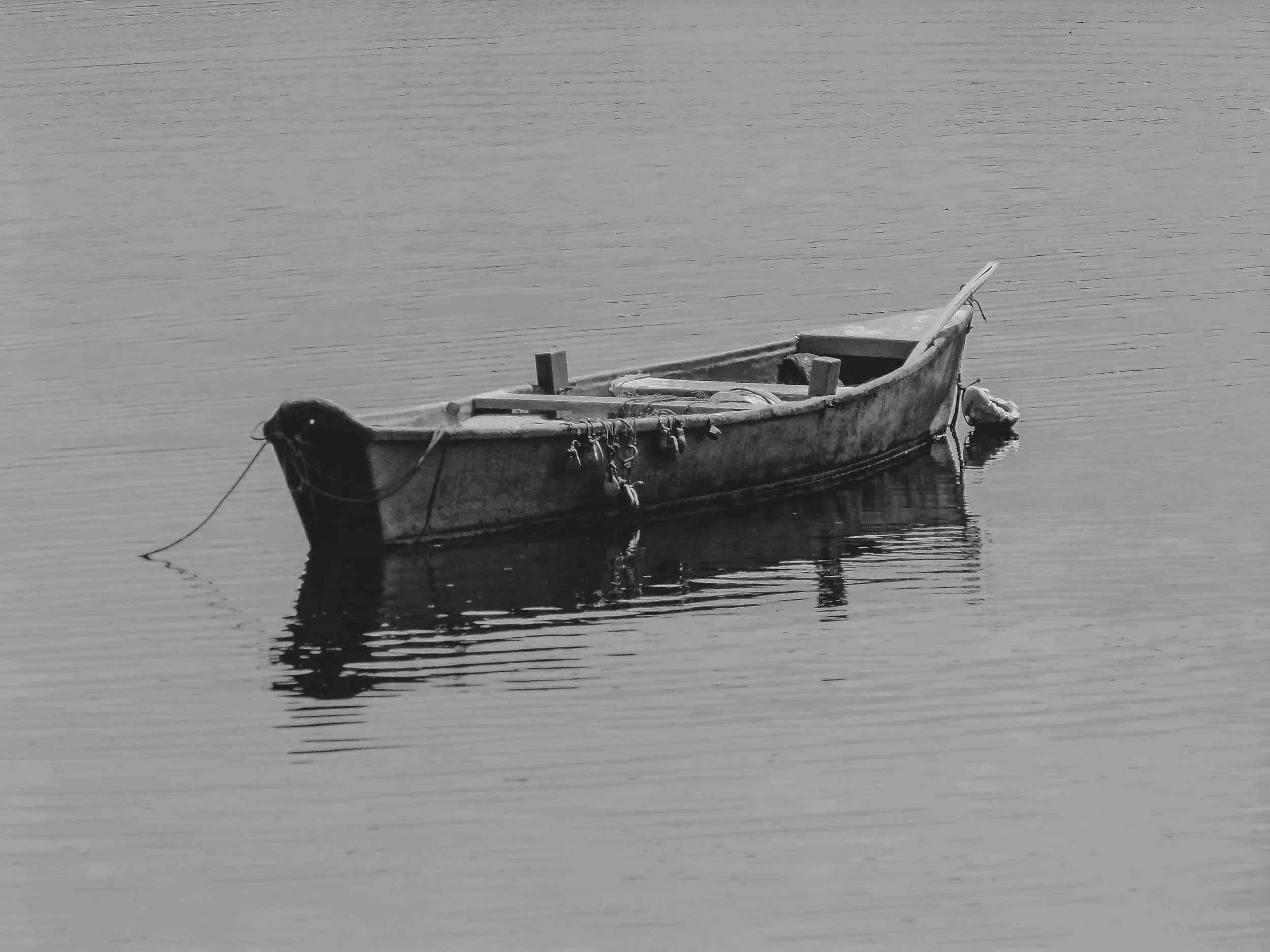the craft
By Holly Woodward
short story

To escape my life, I walked to the river’s edge. On the bank lay a small white craft
and a pole with a mud-stained tip like a pencil. The papery hull wavered under my weight,
as I stepped in, I shoved off from the shore littered with flotsam of twisted baby carriage
and a beached octopus of twisted cords.
The other shore looked verdant, virgin.
The craft quickly moved out of my depth; I thrashed my pencil to no effect. The
river moved in silence, and a wind whistled like a sailor as it set my course.
When the tip ran aground, boys ran from the woods. Heartened at their cheers, I
strode through the shallows. I smiled and they booed and grabbed me so roughly my
dress ripped. The youths laughed as they forced me along a short dirt path past
windowless buildings into a square on a bare hill. At the center stood a scaffold.
The young men gazed at me in solemn silence. The tallest boy held out a noosed
rope.
“A rope to tie the boat?”
“The craft can’t be tethered to either side of the river.” In my left hand he placed a
black hood. “You know who you are.”
“Who?” I still hoped for answers from strangers.
“The woman we’ve been waiting for.”
Fingertips brushed the back of my neck with reverent fear.
“Who are you?” I asked.
“Prisoners of this side.” The boy flicked his unruly curls toward the crowd pressing
closer. Everyone here has to die.”
“It’s the same where I came from.”
“No, you’re free to live there.”
I’d felt free only in the short ride by boat.
His face hardened at my laughter.
“What do you want from me?” I jerked my hand from his grip.
“Kill us. You are our fate, our hangman.”
“Why do you have to die?”
“We have no laws but one: Anyone who tries to escape on that boat has to hang.
Of course, we all tried.”
“Do you want to escape since it’s not allowed, or is leaving forbidden because it’s
all you want?”
“What difference does it make.”
“Why don’t you all just escape?” I waved the crowd off.
No one moved.
“Each of us rowed off alone, as the boat only holds one. But halfway across, it hits
us that if we go no one else will ever have a chance, since the boat will lie on the far
shore. As your land looms closer, we grow scared of what fate might lie in wait. At least we
will know that we’re condemned if we return to this side. Our thoughts turn to home, and
we turn the craft back.”
“Then how did it get to the other side?”
“It went in a storm.”
“But why did you laugh when I arrived if I’m to put you to death?” I lifted my empty
hands.
The boy let the rope slip softly over my palms. “With no more laws, we rob and
beat and rape each other. We can’t wait to die.”
“Why don’t you go hang yourselves.”
“Who could tie for another the noose that should go around his own neck? Help
us.”
I tried to bolt and run to the boat. He grabbed my waist from behind and held me
close.
“Stop or they’ll kill you,” he whispered so close I felt his warm breath.
“Kill me? I thought I was the hangman.”
“Only while you’re hanging them. Run and you’re just one of us, subject to the
same death sentence. You give our lives order and meaning.”
“I can escape back.” I looked to read my chances in his eyes.
“Don’t you see, lady,” he said, turning his eyes toward the boat. “Then the craft
would be lost.”
The crowd followed his gaze. I turned with them and looked past the dark buildings
to the small boat resting on a bed of stones. The craft’s brightness blinded—not even the
sun’s reflection on the waves that rocked it, making the boards groan, was as painfully
sharp as the light, crazed skin of its side.
And I put the black hood over my head.
***
Holly Woodward is a writer and artist. She served as writer in residence at St. Albans, Washington National Cathedral, and was a fellow for four years at CUNY Graduate Center’s Writers’ Institute. Woodward enjoyed a year as a doctoral fellow at Moscow University. She also studied at Leningrad University and has an MFA from Columbia. Her poetry and fiction have won prizes from Story Magazine, the 92nd Street Y, and New Letters, among other honors.